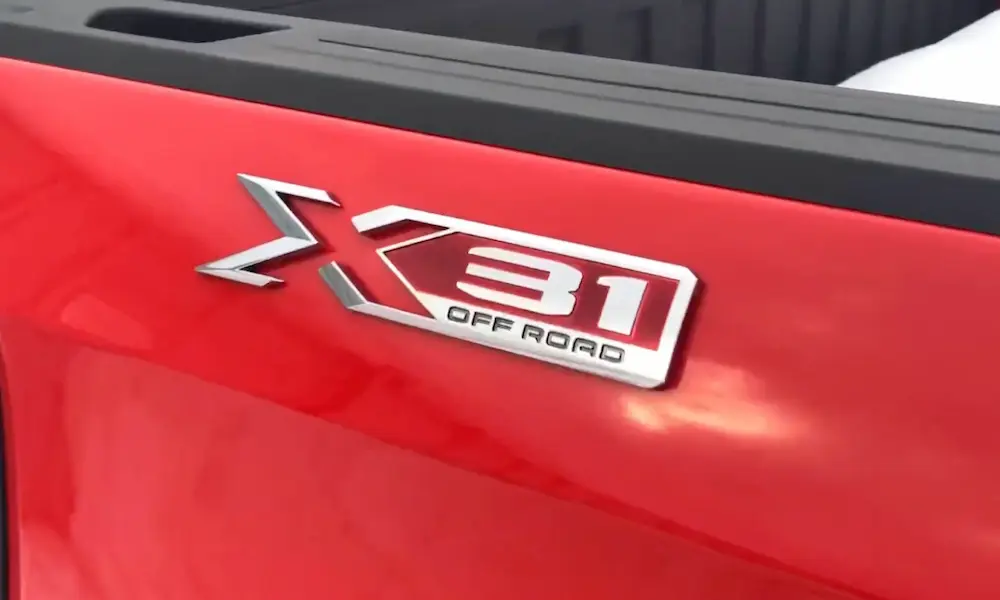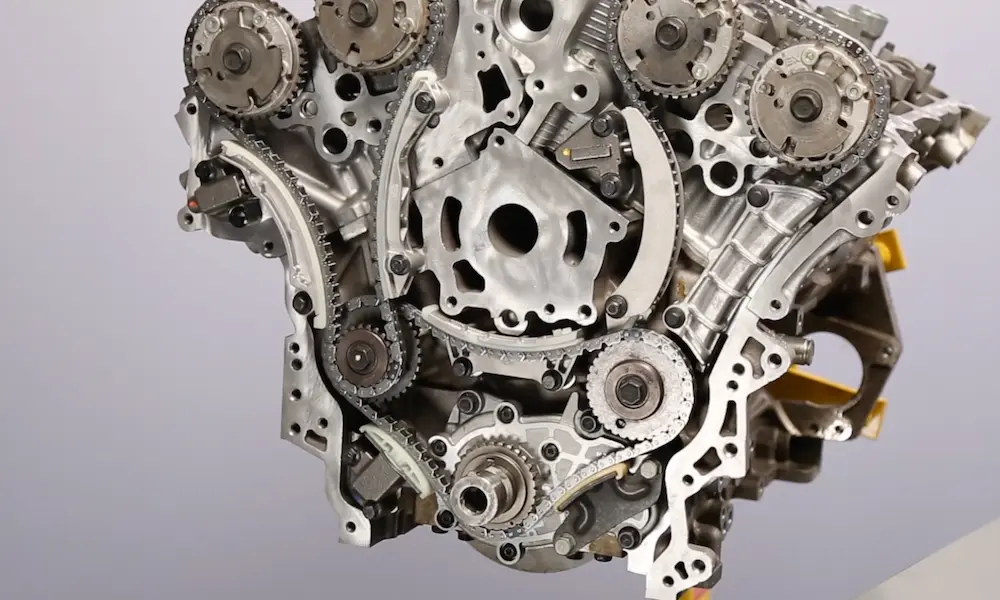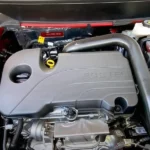Seeing a “Service ESC” message on your GMC Terrain can be frustrating and confusing. This warning usually means there is an issue with your vehicle’s Electronic Stability Control system. You might be dealing with faulty wheel speed sensors or wiring problems. Don’t worry, this article will help you diagnose and fix the problem, ensuring your GMC Terrain is safe to drive. Keep reading to get your issue resolved quickly.
Understanding Electronic Stability Control
Electronic Stability Control (ESC) is a critical safety feature that helps keep your GMC Terrain stable, especially during challenging driving conditions. This section explains how the ESC system works and the specific benefits it provides.
How the ESC System Works
The ESC system in your GMC Terrain helps you maintain control during unexpected driving situations. When sensors in your car detect risky conditions like skidding, oversteer, or understeer, the system automatically activates.
It reduces engine power and applies brakes individually to each wheel as needed. This helps prevent the car from sliding or spinning out, keeping it on your intended path.
Your ESC system works in tandem with the Anti-lock Braking System (ABS) and traction control. The combination enhances overall vehicle stability, particularly on slippery or uneven roads.
Benefits of the ESC in the Terrain
The primary benefit of the ESC in your GMC Terrain is improved safety. By preventing skidding and maintaining better control, the system reduces the chances of accidents, especially in adverse weather conditions.
It also helps improve performance. Even in high-speed conditions, the ESC keeps your vehicle stable, ensuring a smooth and confident drive.
Moreover, the ESC system can help you handle curves and corners more effectively. It adjusts for oversteer and understeer, making your Terrain more responsive to your commands. This means you can navigate through tricky situations with ease.
Common Triggers for the Service ESC Message
The “Service ESC” message in your GMC Terrain can be triggered by several specific issues. Common causes include problems with wheel speed sensors, the steering angle sensor, integrations with the brake system, and tire pressure monitoring.
Wheel Speed Sensors and Their Role
Wheel speed sensors play a crucial role in the Electronic Stability Control (ESC) system. These sensors measure the speed of each wheel and send this data to the ESC. When a wheel speed sensor malfunctions, it can cause incorrect data to be sent, triggering the “Service ESC” message.
Faulty wheel speed sensors can be identified using an OBD2 scanner. A common problem with these sensors is damage due to debris or wear over time. Regular maintenance of your vehicle can help in spotting these issues early.
Steering Angle Sensor and Stability
The steering angle sensor measures the angle of your steering wheel. This information is vital for the ESC system to understand how you’re steering and to maintain vehicle stability. If the ESC system detects a mismatch between the steering angle and the vehicle’s actual movement, it can issue a warning.
Errors from a malfunctioning steering angle sensor can result from loose connections or electrical issues within the sensor itself. Ensuring your vehicle’s electrical systems are in good condition can prevent these problems.
Brake System Integration with ESC
The brake system and ESC are closely linked. The ESC uses braking to control wheel speed and maintain stability. If there are issues within the brake system, such as worn-out brake pads or a malfunctioning ABS, the ESC system can be affected.
When the brakes are not functioning correctly, the ESC can fail to manage the vehicle’s stability, prompting a “Service ESC” message. Regular brake inspections can help keep both your brakes and ESC system in good working order.
Tire Pressure Monitoring for ESC Performance
Proper tire pressure is essential for the ESC system to function correctly. The Tire Pressure Monitoring System (TPMS) keeps track of tire pressures and alerts you if there’s an issue. Incorrect tire pressure can lead to loss of control and trigger a “Service ESC” message.
Maintaining the correct tire pressure and promptly addressing any warnings from the TPMS can help prevent ESC errors. Regularly checking your tires for proper inflation is an easy yet important step in vehicle maintenance.
Each of these factors plays a key role in the successful function of your GMC Terrain’s ESC system. Taking proactive measures can help avoid triggering the “Service ESC” message and ensure your vehicle remains safe and stable.
Troubleshooting and Resolving ESC Issues
To resolve the Service ESC message on your GMC Terrain, focus on the electrical system, sensors, wiring, and the ABS. These components are often responsible for triggering the ESC warning.
Electrical and Battery-Related Fixes
A weak or failing battery can trigger the Service ESC message. Ensure your battery is fully charged. Many auto parts stores offer free battery checks. Look for signs of corrosion around the battery terminals and clean them if necessary. Inspect the wiring around the battery for any damage or loose connections.
A faulty alternator can affect the electrical system and cause ESC issues. Use a multimeter to check the output of your alternator. If it’s not functioning correctly, consider replacing it. Keep an eye on dashboard warning lights which may also indicate electrical problems.
Attending to Sensor and Wiring Problems
The ESC system relies on various sensors to function correctly. Common issues include faulty wheel speed sensors, which can send incorrect signals to the ESC. Replace any defective sensors to restore proper functionality. Be aware of the codes such as U0402 (invalid data) that can help diagnose sensor-related issues.
Check the wiring harnesses connected to the sensors for any signs of wear or damage. Sometimes, moisture or dirt can affect connections, causing the ESC light to turn on. Inspect and clean the wiring connections regularly.
ABS and Its Connection to the Stability System
The ABS is an integral part of the ESC system. Problems with the ABS can directly affect the stability control. Inspect the ABS module and ensure there are no fault codes like P16E3.
Brake fluid levels and quality can affect ABS performance. Check and refill the brake fluid if necessary. Also, inspect the brake pads and rotors; worn-out components can trigger ESC warnings. EBD (Electronic Brakeforce Distribution) issues can also lead to ESC malfunctions. Ensure your braking system is in top condition for the ESC to function properly.
Vehicle Maintenance to Prevent ESC Problems
Keeping your ESC system in good health can help prevent unexpected issues on the road. Focus on routine checks and maintaining your tires to ensure the system works properly.
Routine Checks for ESC System Health
Performing regular checks on your ESC system is vital. Start with examining the battery since a weak or failing one can trigger false alerts, including the Service ESC message. Auto stores often offer free battery testing, so there’s no reason to skip this step.
Next, check your brakes. The ESC relies on the brakes to control stability, so make sure the brake pads and fluid levels are in top shape. Replace worn-out brake pads and keep the brake fluid fresh to avoid any mishaps.
Use an OBD2 scanner to read any error codes from your car’s computer. This can highlight specific issues with the ESC system. Regular use of this tool can save you time and money by identifying problems before they escalate.
Importance of Tire Maintenance for ESC
Your tire pressure has a direct impact on the ESC system. Under-inflated or over-inflated tires can lead to poor handling, which makes the ESC system work harder. Check tire pressure monthly and keep it at the recommended levels found in your vehicle’s manual.
Inspect your tires for wear and tear. Uneven tire wear can signal alignment issues, affecting how the ESC system functions. Rotate your tires every 5,000 to 7,000 miles to promote even wear and extend tire life.
Regular maintenance is key. Make it a habit to align and balance your tires during every service check. Properly aligned and balanced tires ensure the ESC system can maintain stability, especially in difficult driving conditions like rain or snow.
By focusing on these crucial areas, you can help maintain your ESC system and ensure a safer driving experience.










